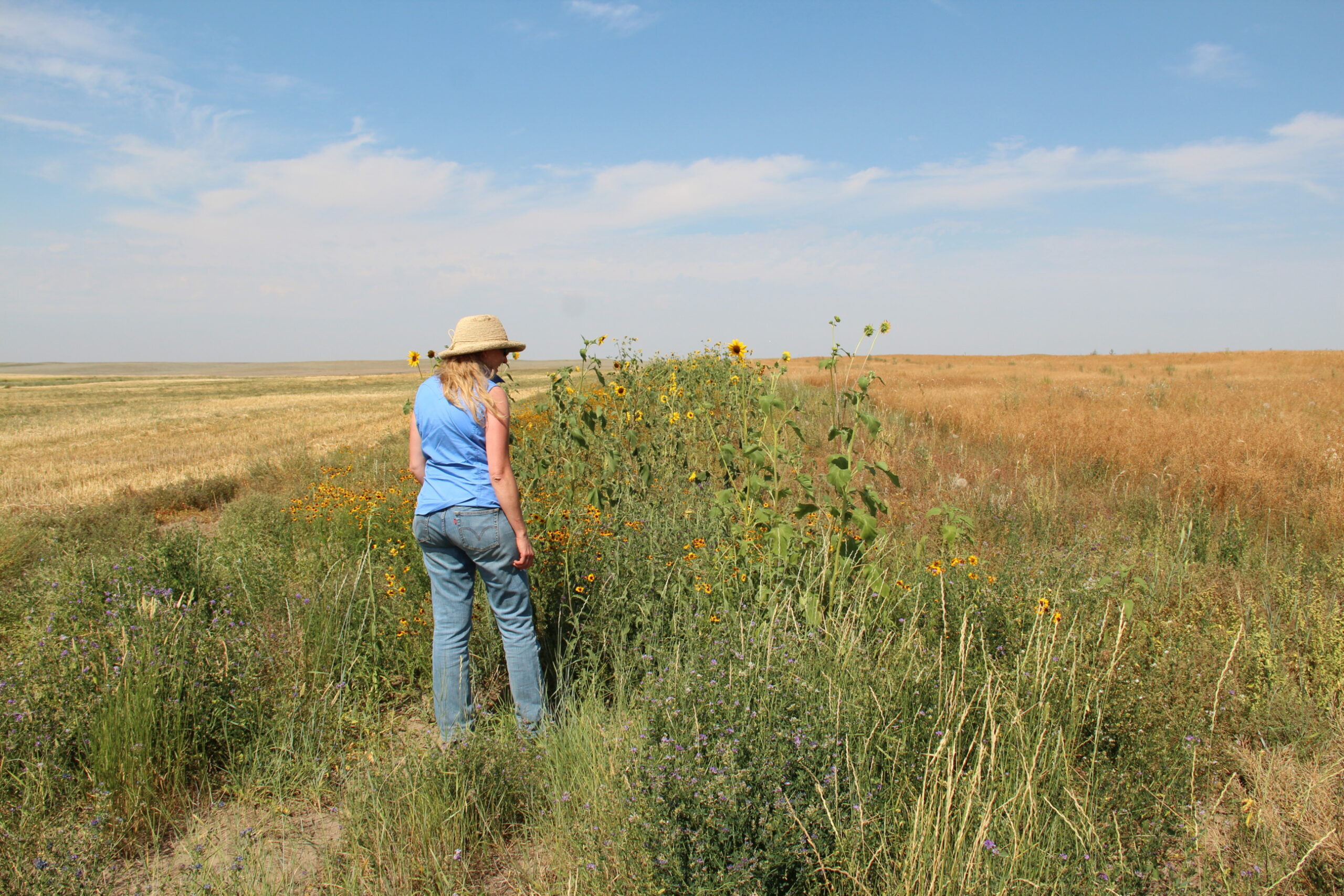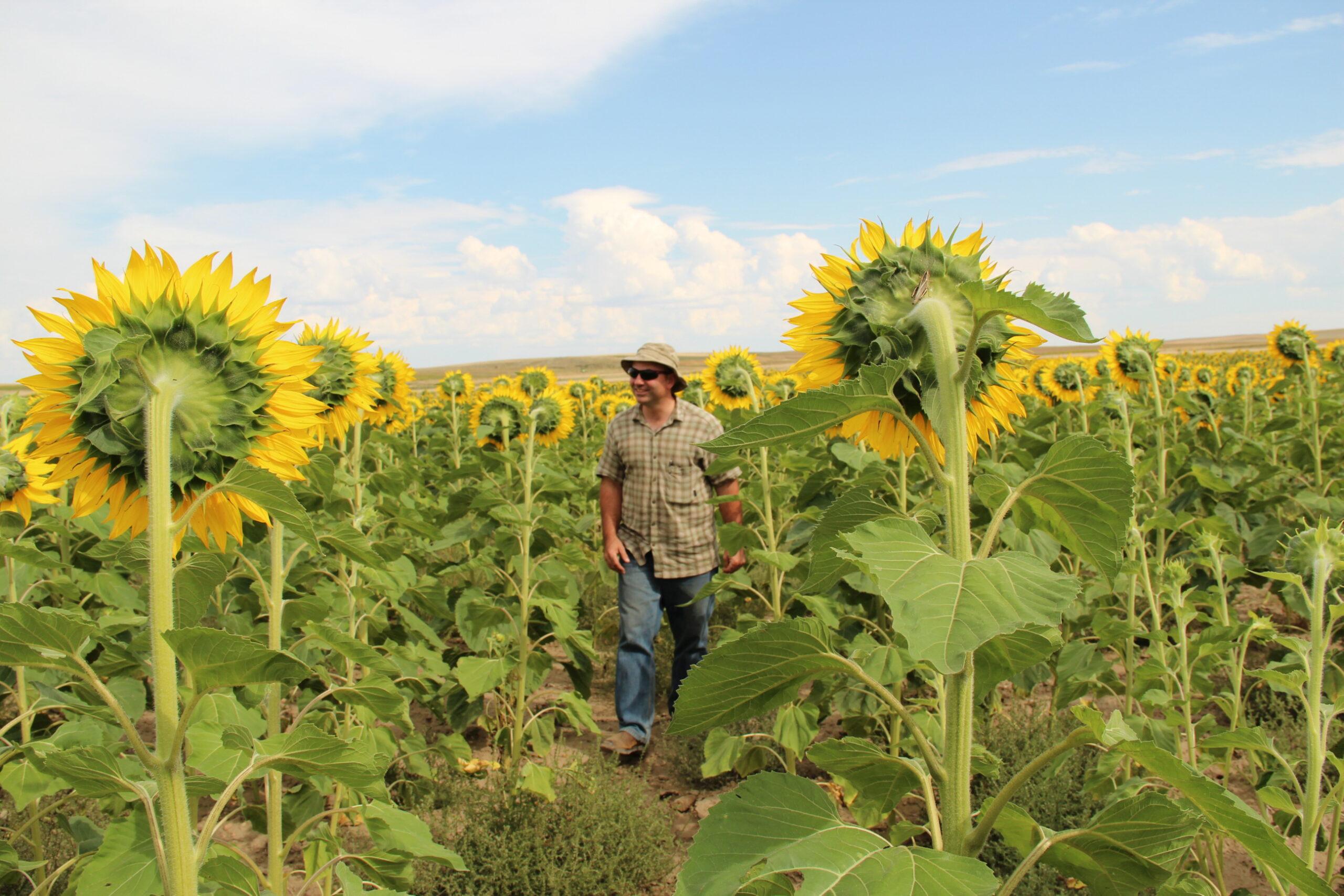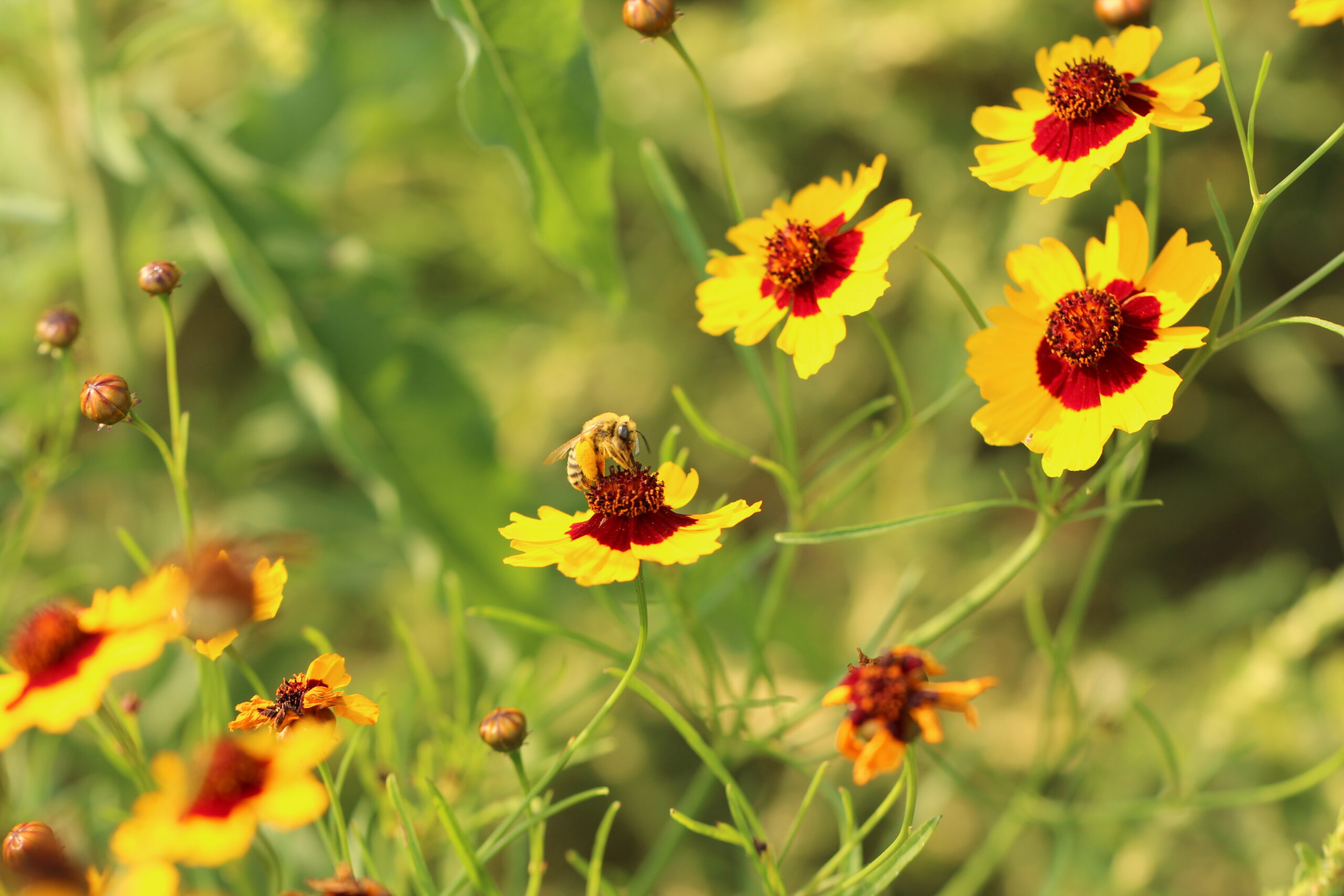Vilicus, the name chosen by Doug Crabtree and Anna Jones-Crabtree for their farm in the Northern Great Plains, means “steward of the land.” This name represents their view on how land should be managed in order to produce the food we eat. Since their initial purchase of their farm 11 years ago they have been managing their now nearly 10,000 acre organic dryland farm in exactly that way.
In the dry, windswept landscape of the Northern Great Plains, Anna and Doug decided early on that they wanted to work with the landscape, which in its natural condition is prairie, by restoring part of the natural legacy of the place. The result is a staggering 26% of their farm in non-crop areas set aside to serve the creatures and natural processes that the farm relies on to stay resilient. This system works to improve soil and water quality, buffer from wind erosion, secure additional moisture from winter snow and support pollinators and other creatures, while producing healthy food for brands like Annie’s Homegrown, TImeless Natural Foods, and more. It was through this journey of land stewardship that Anna and Dog were introduced to the Xerces Society and to Bee Better Certified.


Anna Jones-Crabtree (left) and Doug Crabtree (right) on their farm in Havre, Montana (photos: Jennifer Hopwood / Xerces Society)
Path to Bee Better Certified
Vilicus Farms has led the industry with a conservation minded farming ethic, with their work featured extensively in national media, and in the groundbreaking book, The Lentil Underground. As a pilot farm under Bee Better Certified, their early adoption of the Bee Better standards is a perfect example of their commitment to large-scale regenerative agriculture.
As part of the program Vilicus has installed over 1,200 acres of pollinator attractive cover crops and manages over 300 acres of native range and permanent pollinator strips within their farming operations. The requirement under Bee Better Standards is for a farm to have a minimum of 5% of the farm area in habitat–Vilicus has over 21% of their acreage in habitat. These habitat areas contain native prairie wildflowers that help to sustain pollinators through the season, provide nesting habitat, and protection from the elements.
In addition to adopting the certification practices, Anna volunteers her time, knowledge, and experience as a member of the Bee Better Advisory Board. Her insights, guidance, and perspectives as a farmer are invaluable to our efforts as we work to expand and build this one of a kind certification in a way that benefits farmers and pollinators alike.
Ingredients they grow
It is not uncommon to hear the question “why support pollinators when the crops we grow don’t need them?” This question applies to Vilicus Farms. With rotations of small grains(wheat, oats and rye), pulses (lentils, dry peas and beans) and oilseed crops,only a few of the crops benefit from pollinators. But to Anna and Doug, being a steward of the land is not just about the season to season gain of these conservation practices.It is a long term effort that will reap rewards for the larger ecosystem.
Partners in the supply chain
The Vilicus Farms website lists some of the best known companies and brands in the regenerative space including Annie’s Homegrown, Timeless Natural Foods, and Iroquois Valley Farms and Grain Millers. Anna and Doug also work to build community, operating an apprentice program to train a new generation of regenerative farmers, and building an ever-growing network of like-minded organic farmers and companies who are redefining agriculture. They’re exactly the kind of farm that represents the Bee Better Certified values.
Vilicus Farms can and does offer direct CPG/food manufacturer/processor contracting on their organic and Bee Better Certified crops. Their typical annual rotations include: red winter wheat, rye, oats, yellow peas, green lentils, oats and hulless oats, red spring wheat, soft white spring wheat, flax and buckwheat. They also have extensive experience with chickpeas, spelt, sunflower, canola, and more.

